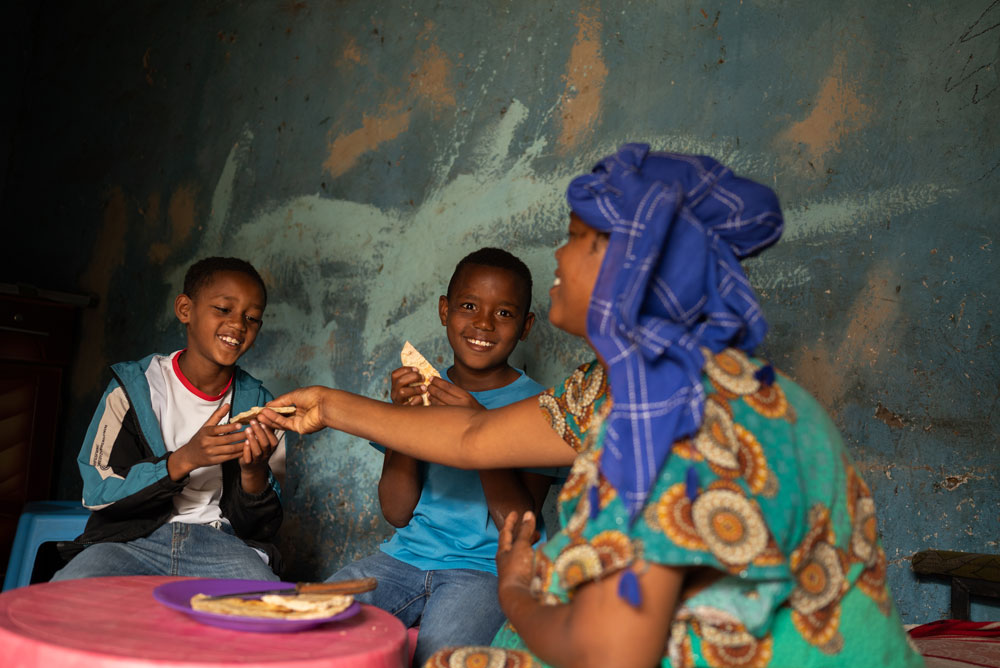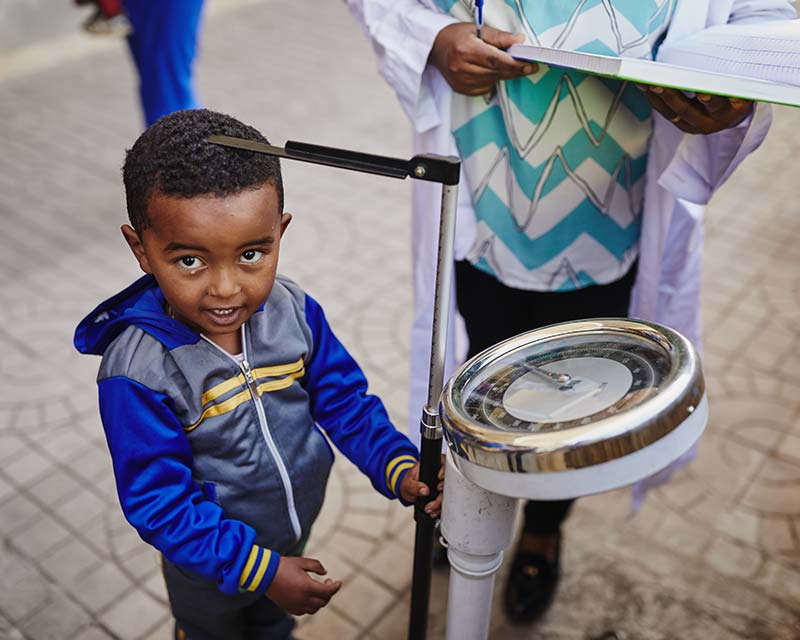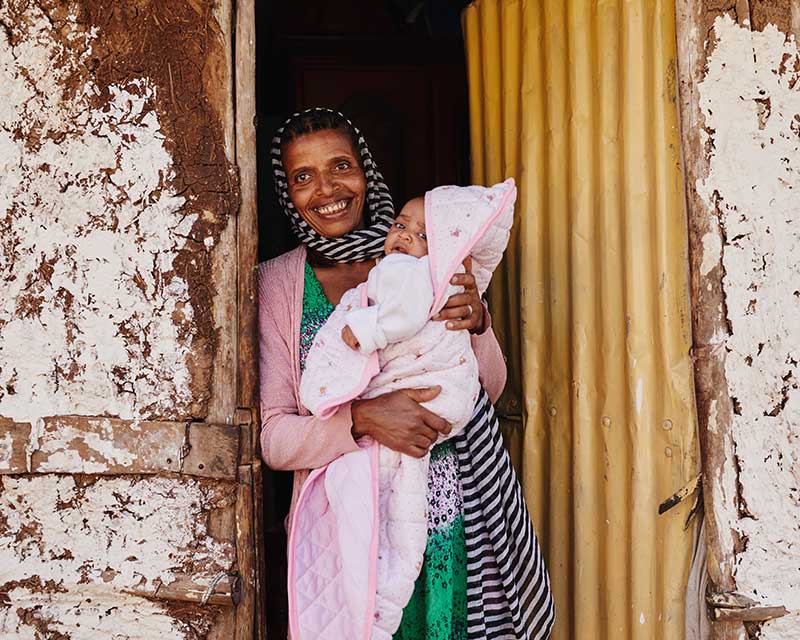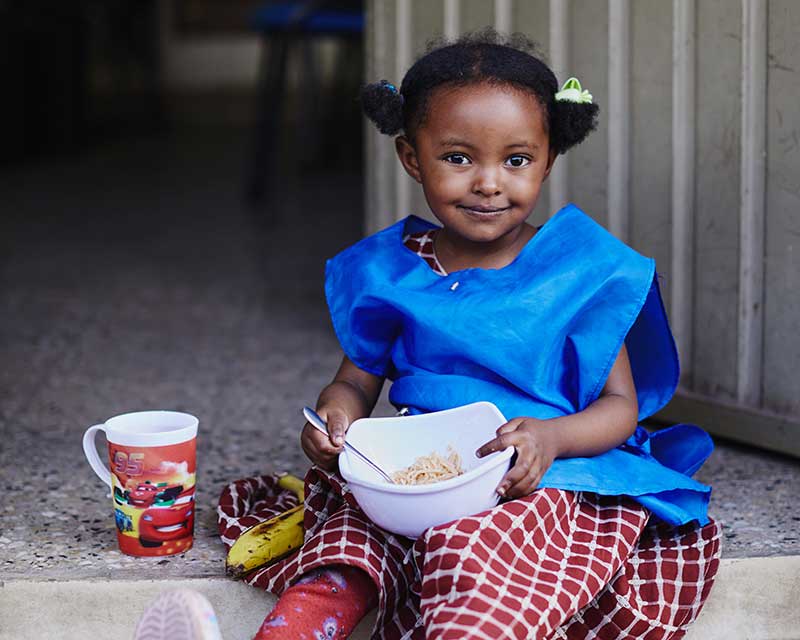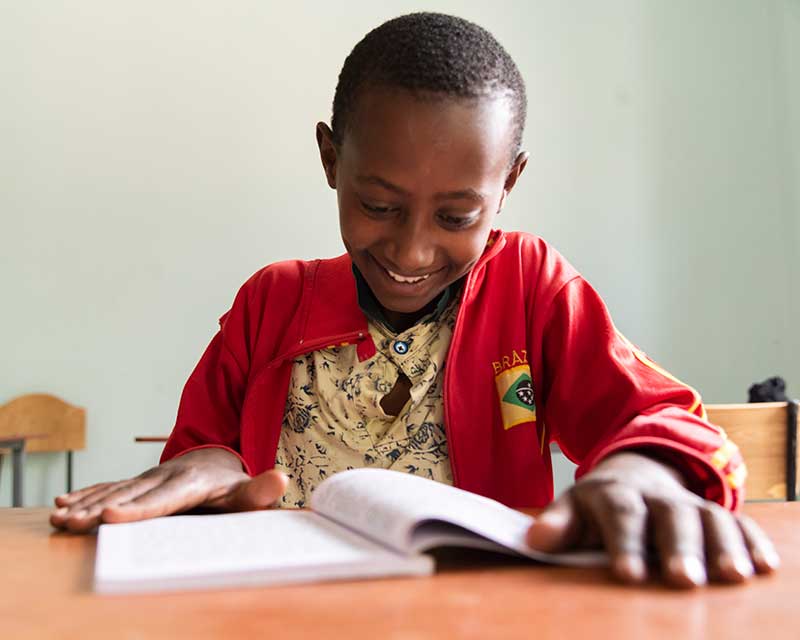As one of the oldest nations in the world, Ethiopia has a rich and proud history. It is the largest and most populated country in the Horn of Africa and its economy is heavily agricultural. Ethiopia has a strong tradition of music and is thought to be the birthplace of coffee.
Ethiopia has played a key role in Africa’s development. It was one of the first to sign the Charter of the United Nations and was a powerful symbol of African freedom and sovereignty during an era of widespread colonisation.
Yet millions of Ethiopians still live in grinding poverty.
Decades of political instability, ongoing conflict, and devastating famines in the late 20th century severely curtailed its progress.
Much of Ethiopia’s economy is based on agriculture, yet deforestation and severe weather events leave it vulnerable to drought.
Diseases such as malaria and tuberculosis continue to claim thousands of lives every year, and the most vulnerable are the youngest children.
Ethiopia is also home to a large population of displaced people, many from farming towns whose crops have failed in recent years, as well as refugees from surrounding nations, including South Sudan, Somalia and Eritrea. Conflict centred in the Tigray region from November 2020 to November 2022 left millions of people displaced and in need of urgent humanitarian support.
A collision of crises including conflict, COVID-19 and drought has left many families facing unacceptable levels of hunger. More than one in three children across the country suffer from malnutrition, which affects every part of life and makes them more vulnerable to other diseases. The nation still has one of the world’s highest mortality rates for children under the age of five.
Christianity became Ethiopia’s state religion in the fourth century, and the Church remains a beacon of hope in local communities across the country.
In the midst of difficult circumstances, local churches are giving the children the practical, spiritual and emotional support they need to thrive.
READ MOREkeyboard_arrow_down
READ LESSkeyboard_arrow_up
